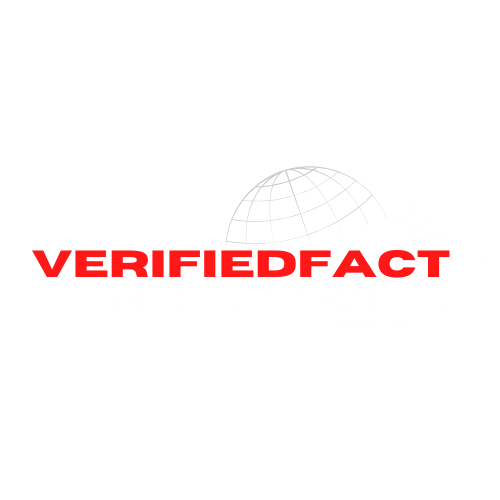Muckraking journalism isn’t just a catchy term; it’s the superhero of the media world. Picture a fearless reporter, armed with a notepad and a sharp wit, diving headfirst into the murky waters of corruption and injustice. They shine a light on the shadows where secrets lurk, exposing the truth that others would rather keep hidden.
This brand of journalism has a rich history, driving change and stirring up trouble for the powerful. It’s not just about sensational headlines; it’s about holding the mighty accountable. So, buckle up as we explore the captivating world of muckraking journalism, where facts are the ultimate weapon and the pursuit of truth is always in style.
Muckraking Journalism
Muckraking journalism focuses on exposing societal issues, corruption, and injustice. This form of journalism emerged in the late 19th and early 20th centuries, prominently during the Progressive Era. Pioneering journalists played vital roles in uncovering scandals, often targeting corporations and government entities. The work of muckrakers led to significant reforms in various sectors, including labor laws and public health regulations.
Prominent figures included Upton Sinclair and Ida B. Wells. Their investigations often revealed the darker side of industrial practices and social injustices. Publications such as McClure’s Magazine became platforms for these fearless reporters, amplifying their messages and reaching wider audiences.
Significant outcomes resulted from these investigative efforts. Legislation like the Pure Food and Drug Act arose from public outcry generated by muckraking articles. Direct accountability became a key principle, as journalists held powerful figures responsible for their actions.
Muckraking journalism remains relevant today, continuing to inspire modern investigative reporting. The commitment to uncovering truth still drives many journalists. Societal awareness grows with every exposé, reinforcing the importance of a free and independent press in democratic societies.
In contemporary contexts, digital platforms enhance the reach of muckraking efforts, allowing for rapid dissemination of information. Social media empowers citizens to participate in discussions, further fueling the demand for transparency. It’s evident that muckraking journalism not only shapes public discourse but also encourages active engagement among communities.
Historical Context

Muckraking journalism originated in a period marked by rapid industrialization and social upheaval. Journalists aimed to expose societal issues and promote change.
The Origins Of Muckraking
Muckraking emerged during the Progressive Era, which spanned the late 19th and early 20th centuries. Rapid industrial growth and urbanization led to widespread corruption and social injustice. Journalists responded to public outcry by investigating and reporting on these issues. The term “muckraker” became popularized after President Theodore Roosevelt used it in a 1906 speech. It described those who focused on unearthing dirt and scandals rather than uplifting stories. As a result, muckraking became synonymous with investigative journalism aimed at reform.
Key Figures In Muckraking Journalism
Several influential journalists shaped muckraking and its impact. Upton Sinclair, with his novel “The Jungle,” exposed horrific conditions in the meatpacking industry. This groundwork contributed to significant legislative changes, including the Pure Food and Drug Act. Ida B. Wells investigated and reported on lynchings, shining a light on racial injustice. Lincoln Steffens delved into municipal corruption through his work “The Shame of the Cities.” These key figures inspired a movement focused on accountability and transparency, setting a foundation for future generations of journalists and investigators.
Impact On Society
Muckraking journalism plays a crucial role in shaping societal values and driving change. By exposing corruption and injustice, it influences public perception and holds power to account.
Influence On Public Opinion
Investigative reports profoundly impact how people view institutions. Articles revealing corporate misconduct shift public sentiment toward distrust. Muckrakers often shine a light on systemic issues, compelling readers to reconsider accepted narratives. Public outcry can escalate as shocking revelations surface, motivating individuals to demand action. In many instances, public awareness leads to widespread discussions that challenge prevailing attitudes. Change frequently follows as community voices unite around shared concerns.
Contributions To Reforms
Muckraking journalism contributes significantly to legislative change. Reports on unsafe working conditions led to worker safety laws, revolutionizing labor standards. Upton Sinclair’s exposé on the meatpacking industry prompted the establishment of the Pure Food and Drug Act. Such investigative work exposes failures in governance, pushing lawmakers to strengthen regulations. Here, the connection between journalism and reform stands strong; each discovery shapes policies impacting society at large. Landmark investigations drive social progress by advocating for marginalized communities. The legacy left by muckrakers continues, reinforcing the need for transparency and accountability in governance.
Techniques Used In Muckraking Journalism
Muckraking journalism employs various techniques to expose corruption and advocate for social change. These methods ensure thorough investigations and compelling storytelling that resonate with the public.
Investigative Approaches
Investigative journalism relies on in-depth research and data analysis to reveal hidden truths. Reporters gather firsthand accounts through interviews with whistleblowers, victims, and experts. They access public records and legal documents, establishing a comprehensive understanding of the issue. Techniques like undercover reporting allow journalists to directly observe and document suspicious activities. Moreover, collaboration with other media organizations can enhance the impact of findings, increasing awareness and urgency surrounding critical issues.
Ethical Considerations
Ethics play a significant role in muckraking journalism. Journalists prioritize accuracy by verifying facts and avoiding sensationalism. Transparency is critical to foster trust with the audience. Consent must be obtained when interviewing vulnerable subjects to respect their privacy and humanity. Furthermore, the potential consequences of exposing wrongdoing require thoughtful consideration; journalists often weigh the public’s right to know against potential harm to individuals involved. Striking a balance between investigative zeal and ethical responsibility ensures that muckrakers effectively serve the public interest.
Modern-Day Muckraking
Muckraking journalism continues to thrive in today’s media landscape, showcasing a relentless pursuit of truth and accountability.
Current Examples Of Muckraking Journalism
Investigative reports uncovered significant corporate fraud, exemplified by the Dieselgate scandal involving Volkswagen. Journalists revealed that the automaker manipulated emissions tests, prompting widespread outrage and regulatory reforms. Another noteworthy case includes the reports on the Flint water crisis, where journalists highlighted the negligence that led to lead contamination. This investigation exposed systemic failures and spurred actions aimed at restoring safe water supply. Reports on sexual misconduct in high-profile organizations, such as the #MeToo movement, showcased the power of journalism in amplifying voices often silenced. These examples illustrate the ongoing importance of muckraking in exposing injustices and driving change.
The Role Of Digital Media
Digital media enhances the impact of muckraking journalism, providing platforms for widespread dissemination. Social media facilitates real-time sharing of investigations, engaging audiences and fostering discussions. It enables journalists to reach diverse demographics, amplifying crucial stories often ignored by traditional outlets. Multimedia formats, like video and podcasts, create immersive experiences that deepen audience connection with the stories. Furthermore, online databases and tools streamline in-depth research, allowing journalists to uncover data-driven insights quickly. This shift toward digital platforms supports accountability, encouraging individuals to participate in advocating for change. Overall, digital media significantly strengthens the relevance and reach of modern muckraking efforts.
Cornerstone Of A Vibrant Democracy
Muckraking journalism remains a cornerstone of a vibrant democracy. Its legacy of exposing corruption and advocating for social justice continues to inspire journalists today. By leveraging modern technology and digital platforms, muckrakers can reach wider audiences and engage communities in meaningful discussions about accountability.
The commitment to transparency and ethical reporting is more crucial than ever. As society faces new challenges, the principles of muckraking journalism empower individuals to question authority and demand change. This enduring tradition not only shapes public discourse but also fosters a culture of vigilance that is essential for progress.

